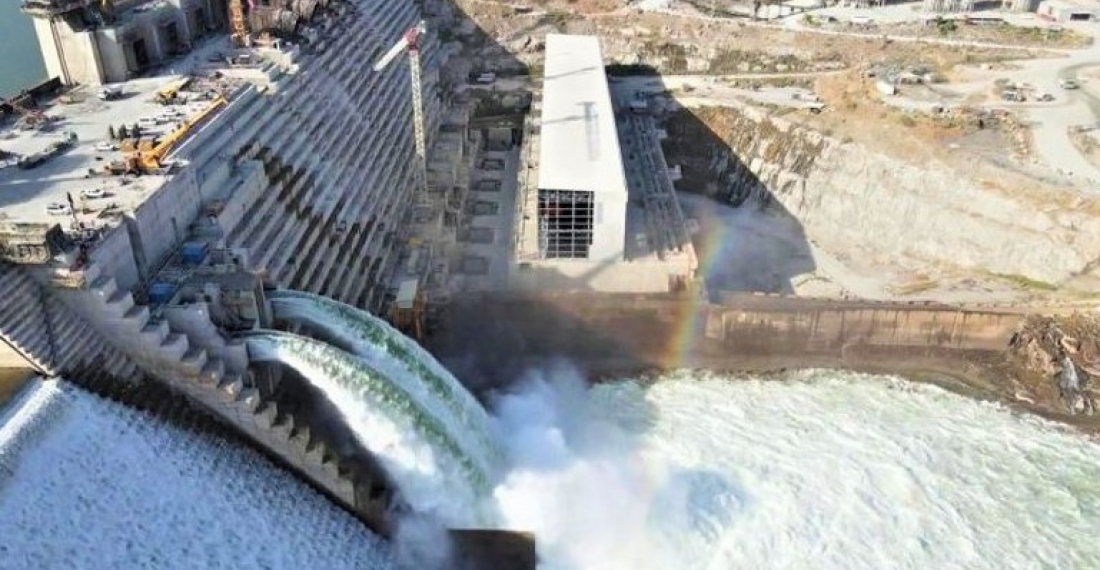Egyptian Foreign Minister Sameh Shoukry headed to Brussels on Saturday (10 July) to hold talks with officials from the European Union on the Grand Ethiopian Renaissance Dam (GERD) crisis. Last week Egypt and Sudan raised the issue at the UN Security Council, who in turn entrusted the African Union to resume negotiations between the two countries and Ethiopia.
A statement from the Foreign Ministry said that Shoukry brings with him a message from Egyptian President Abdel Fattah al-Sisi to the President of the European Council, Charles Michel. Shoukry said that Egypt hopes to involve the European Union and other parties in any future negotiations regarding the filling and operation of the dam. Currently, the negotiating framework is conducted under the auspices of the African Union with the observation of the United Nations.
The diplomatic crisis, which has been going on for almost 10 years, escalated last week when Ethiopia informed Egypt on 5 July that it has begun the process of the second filling of the dam's reservoir. Egypt expressed its outright rejection of this unilateral measure and called for reaching a legally binding trilateral agreement on the filling of the dam.
Egypt, where the Nile meets the Mediterranean sea, relies heavily on the water of the river and is concerned that the filling of the dam will impact the country's water supply, decrease the level of freshly stored underground water and challenge the irrigation systems.
The League of Arab States considers the GERD crisis a key Arab national security issue. Saudi Arabia has thrown its weight behind Egypt and Sudan in their bitter dispute with Ethiopia, and Tunisia introduced a draft resolution calling for ceasing the unilateral filling and reaching common ground trilaterally.
Ethiopia says it has right on its side referring, to a 2015 'Declaration of Principles' agreement which Egypt and Sudan signed. The agreement, though acknowledges Egypt and Sudan share of water, has several technical flaws which Egypt and Sudan claim Ethiopia has been using to its advantage.
Shoukry said the intervention of the Security Council members is a reflection of their interest in the GERD issue and the hopes the international community will assist the three countries to reach an agreement. Whilst Shoukry holds talks in Brussels, his Sudanese counterpart headed to Moscow on a similar mission. Both Egypt and Sudan are clearly mobilising all their diplomatic contacts to secure international support for their position.
source: commonspace.eu with Al Jazeera (Doha), Independent Arabia (London) and other sources.
photo: View of the Grand Ethiopian Renaissance Dam, built near the Ethiopian Sudanese border.







